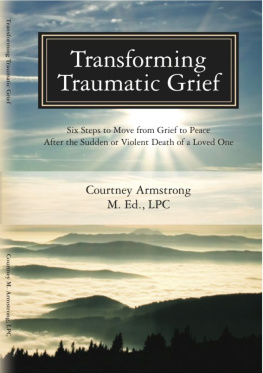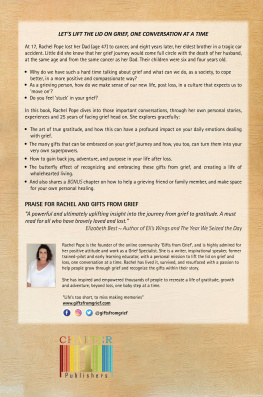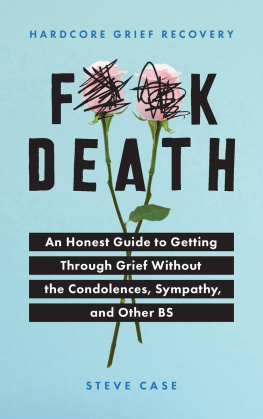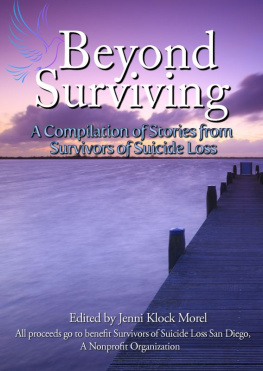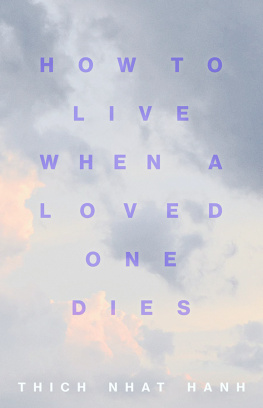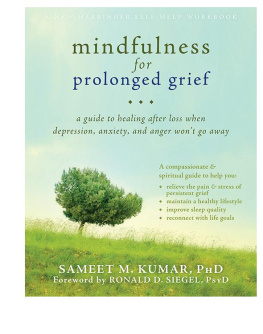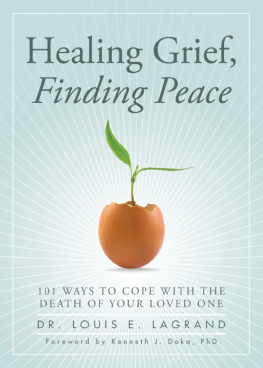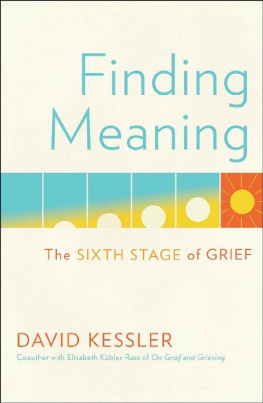Copyright 2020 Gary Sturgis
PRINT ISBN: 9781647183400
EBOOK ISBN: 9781647183417
All rights reserved. No part of this publication may be reproduced, stored in a retrieval system, or transmitted in any form or by any means, electronic, mechanical, recording or otherwise, without the prior written permission of the author.
Published by BookLocker.com, Inc., St. Petersburg, Florida.
First Edition
Dedication
To Scott
Forever and For Always No Matter What, Pinky Swear!
And to Rob... Its All Good!
Grief is the price we pay for love.
Queen Elizabeth II
CONTENTS
Preface
My husband Rob died on January 24 th , 2014, after a courageous battle with Stage 4 Metastatic Melanoma. It was then that I began to really understand what it means to have loved so deeply and to have lost so tragically. The grief journey I began continues to this day, but I have found the key to my survival was to find my way from grief to healing. It was this loss and process that have ultimately changed me as a person. A change I did not want or expect but that brought me to a better understanding of love, empathy, and compassion.
It was always my belief that tragedy and heartache happened to other people. They were only images on the nightly news. I watched with interest, felt compassion for the victims, and moved on with my life. I never stopped to think about what the aftermath of such tragedy could consist of and how it would affect those involved. The reality of life is that people die. They die every day. When Rob died, life stopped and changed. The unfairness in the world hit too close to home. A direct hit to my own soul.
Rob came into my life when I least expected it, and he left in the same way. I have no regrets about any of our years together. In fact, they were some of the best years of my life. I feel fortunate to be so blessed to have loved someone that I now miss so intensely. I cant imagine my life not being touched by his kindness and compassion. He showed me what it felt like to be cherished and loved unconditionally. That is a gift I will keep in my heart forever.
If you are reading this book, you most likely have suffered a loss of your own. For that I am truly sorry. I dont have a cure for grief, but I have learned many important aspects about surviving a major loss. Theyre based on my own loss and my volunteer work with grief support groups.
You may have heard about the different stages of grieving. My journey from grief to healing was in four parts, the Loss, the Pain, the Difference and the Healing. These were my personal stages. In the beginning was the loss of my husband, from there I moved into the pain, to navigating a world that was different and eventually to healing. The pain is ever present, but life goes on and is still worth living. Through my own grief experience and that of others, Ive found that life still has joy, happiness, and peace.
My wish for you is that you find some hope and peace as you travel your own road of grief to a place of healing. If something I share with you helps lead you in that direction, then I have achieved my goal.
Part One
The Loss
Chapter 1
Anticipatory Grief
As my husband Robs primary caregiver for a year before he died, I found myself both inexperienced and ill-prepared. I was not only suffering from severe sadness, but I was also worrying since I was the only one of us employed at the time. I was working in a non-clinical position at a hospitals outpatient clinic, and although money was tight, I decided to take an unpaid leave of absence and care for Rob full-time.
The hospice team coached me on what medications to give him and how to dress his still existing surgical wounds. It was beyond painful to watch him wasting away both physically and mentally. We both knew in our hearts what was happening, but we never talked about it. We just went on with life as if nothing had changed but we both knew the truth. Our whole world had changed.
We spent most of our time talking about him getting better and getting back to doing the happy things we loved to do as a couple. I prayed for that kind of outcome but knew in my heart it was not going to happen. Each day he lost more weight and became more distant emotionally. We did not want to let go and say goodbye. We just wanted everything to go back to normal. All the prayers I was saying were not being answered. So, we danced silently around the reality that had now become our life. I sometimes think the grief I suffered then was more intense than the grief I suffered after his death.
I remember those long and sad days. The feeling of being so helpless and unable to take away the pain of the person I loved the most. The person who was always my best friend, soulmate and companion. On that part of my journey I focused only on what I needed to do. Every minute of every day. I dont think anything anyone could have said to me would have changed my situation.
This anticipatory grief can hurt as much as what you feel when a loved one dies. Sometimes, it may make the loss after death easier, but that was not the case for me. I was still in shock when that day came.
I learned I couldnt ignore it and hope to just power through. I had to allow myself to process the grief and appreciate the time we had left.
I know from my own experience that even though the loved one youve been caring for is still alive, you have already started feeling the weight and pain of their loss. While some people might think of this as a type of depression, its really a distinct form of grieving. And, its also a natural, expected response to caring for someone with a long-term or incurable illness.
Anticipatory grief is unlike the grief and mourning that happen after someone has passed away; this grief begins before the person has died. But the emotions can be similar. When someone has a disease, injury, or condition that permanently changes their personality, like Alzheimers, the grief may come as it sinks in that your loved one, as you knew them, will be gone even before theyre gone.
You might have anxiety, dread, or sadness as you wait for their passing. You could also feel a sense of loss and longing for your independence and freedom as your own life changes, because much of your time and energy are now going to someone who needs you. And that can also lead to guilt. Lots of it!
Anger, bitterness, even resentment are common feelings too, as youre forced to come to terms with the fact that you cant change the outcome.
Its important to remember that all these feelings are normal in such a difficult situation. And often, primary caregivers or those who take on the daily responsibility for someones well-being, feel the impact of this loss each day, more deeply and in a way that others in their lives probably dont.
Whether its with a support group, a counselor, a good friend, or within the privacy of a journal, sharing what youre going through can ease those moments when youre sad, powerless, and tired.
Your loved one may be dealing with their own grief. In my situation with Rob he became very introverted, which was not a normal personality trait for him. He knew he was dying, and his way of dealing with that was to shut down. This left me feeling more isolated with my sadness of the anticipation of his death.
Its okay to cry or admit that youre angry or frustrated. These are helpful ways to keep pent up emotions from turning into resentment toward the person you care for or from taking a toll on your own health.


